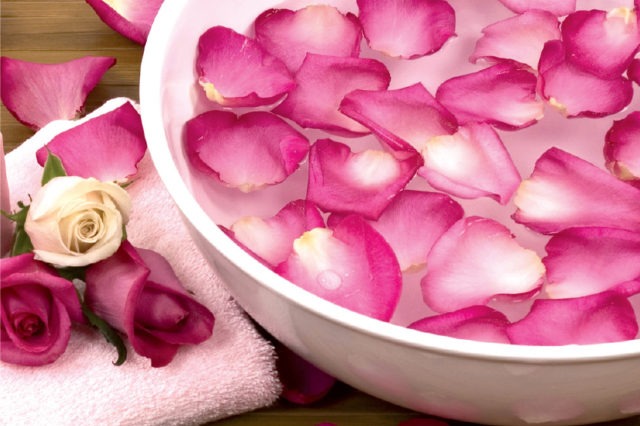Acne is a skin hormonal imbalance for condition that is characterized by blackheads, whiteheads, inflamed pimples (pustules) and deeper lumps (nodules). Acne generally occurs on the face, but may break out on the neck, chest, back, shoulders and upper arms also.
Causes for Acne
Hormonal imbalance (testosterone) causing over stimulation of sebaceous glands is the single most factor causing acne. Acne happens when oil (sebaceous) glands secreting sebum become active around puberty. Sebum (oil) is a natural substance that lubricates and protects the skin, and under certain circumstances, cells that are close to the surface block the openings of sebaceous glands and cause a buildup of oil underneath. This oil stimulates bacteria (which live on everyone’s skin and generally cause no problems) to multiply and cause surrounding tissues to become inflamed. Inflammation near the skin’s surface produces a pustule; deeper inflammation results in a pimple; deeper still forms a pus-filled cyst. If the oil breaks through to the surface, the result is a “whitehead.” If the oil accumulates melanin pigment or becomes oxidized, the oil changes from white to black, and the result is a “blackhead.” Blackheads are therefore not dirt, but oxidized oil. Acne can leave people with scarring which can unfortunately lead to low-self esteem. A solution to this may be skin resurfacing using a method known as micro needling.
Home remedies for Acne
Lemon: Lemon contains citric acid, which is very effective in treating acne. It also acts as an astringent and helps remove excess oil, kills bacteria, and normalizes the skin’s pH balance. The vitamin C found in citrus fruits is vital for a healthy glowing skin. Using fruits belonging to this family naturally dry up the pimples. Here are some suggestions on how to prepare a homemade acne treatment using lemon:
-
- Apply fresh lemon juice on the acne and leave it overnight. Wash with water the following morning.
- Mix one part of freshly squeezed lemon juice with an equal part of rose water. Put the mixture on affected areas for at least half an hour. Wash it afterwards with water.
Aloe: Aloe Vera is a cellular regenerator and has antibacterial and anti-fungal effects. Use Aloe Vera juice or gel to counteract infection and promote healing. For acne scars, using Aloe Vera juice morning and night for as long as necessary will help reduce the scars and improve skin complexion and color. The pulp of an Aloe plant is an excellent skin cleanser. Break off a portion and rub the pulp directly on the skin.
Cucumber: This has a cleansing action within the body by removing accumulated pockets of old waste material and chemical toxins. Cucumber purifies the blood and lymphatic system, resulting in a clearer skin. Juice a peeled cucumber in a blender and apply it to the acne. Another variation of this remedy is to drink four or five cups of cucumber juice daily for a week.
Garlic: Garlic is rich in alkaline salts and sulphur compounds; garlic is a blood purifier and keeps the skin clear of spots and pimples. Rub the acne with raw garlic several times a day and wash off once the application dries off. This is a good treatment for acne, but you should use it with extreme caution if you have sensitive skin as garlic is very strong, and can burn or irritate your skin. You can also use garlic juice by crushing the garlic and squeezing the juice through a piece of cheese cloth or a garlic press.
Cilantro: A teaspoon of cilantro juice, mixed with a pinch of turmeric powder, is another effective home remedy for pimples and blackheads. Apply the mixture on the face after thoroughly washing it every night before retiring. You may also use mint juice/holy basil/fenugreek juice in a similar manner. All of these have antiseptic, astringent properties, and thus help in healing the infection and dry up the excess sebum.
Water: Take a glass of water at room temperature. Fill the mouth with some water and rotate (squish) the water in the mouth till you feel that the water temperature has changed to slightly warm. Then throw the water out and repeat this process many times till you feel the mouth filled up with the sweet taste of saliva. Water takes away the excess heat of the body, activates the digestion, and dilutes the acid.
Sandalwood: Sandalwood is a mild astringent. It helps in strengthening and contraction of the muscles, gums and skin. It is effective in providing a tighter skin tone. Make a sandalwood paste with rose water and apply on the scars. Allow it to dry and wash it off with cold water.
Rose water: Rose water stimulates the skin, heightening the blood flow. Rose water controls and balances sebum production, making it useful for both dry and oily skin. It can balance and restore the skin’s pH and helps tighten pores. Its antibacterial properties help fight acne, giving troubled skin a gentle rather than a harsh treatment. It is reputed to be useful in the treatment of all sorts of dermatitis. You may apply rose water on the face with a cotton ball before retiring to bed everyday.
Tea Tree Oil: This is very effective against acne as it contains bacteria-fighting substances called Terpenes. It is said to help with the inflammation of your acne and calm it down, so at least it isn’t painful. That’s a good start at least. There’s enough to deal with when you suffer from acne. Acne is often caused by bacteria and the Terpenes either kill them or weaken them enough to be destroyed by protective antibodies. One should use tea tree oil as an ‘‘on spot’’ application to acne, and not on the entire face as it dries other areas with less active oil glands.
 Indu Arora, Ayurveda and Yoga Therapist considers herself a student for lifetime. She has been sharing about Yoga philosophy, Yoga Therapy and Ayurveda since 1999. She is inspired by and taught under Kriya Yoga, Himalayan Yoga, Kashmir Shivaism and Sivananda Yoga lineages. She has studied both Yoga and Ayurveda in a traditional Guru paramapara setting. Her teaching style is rooted in empowering and inspiring students to awaken the inner Guru. Her core philosophy is, ‘Nothing has the greatest power to heal, but Self!” www.yogsadhna.com
Indu Arora, Ayurveda and Yoga Therapist considers herself a student for lifetime. She has been sharing about Yoga philosophy, Yoga Therapy and Ayurveda since 1999. She is inspired by and taught under Kriya Yoga, Himalayan Yoga, Kashmir Shivaism and Sivananda Yoga lineages. She has studied both Yoga and Ayurveda in a traditional Guru paramapara setting. Her teaching style is rooted in empowering and inspiring students to awaken the inner Guru. Her core philosophy is, ‘Nothing has the greatest power to heal, but Self!” www.yogsadhna.com




